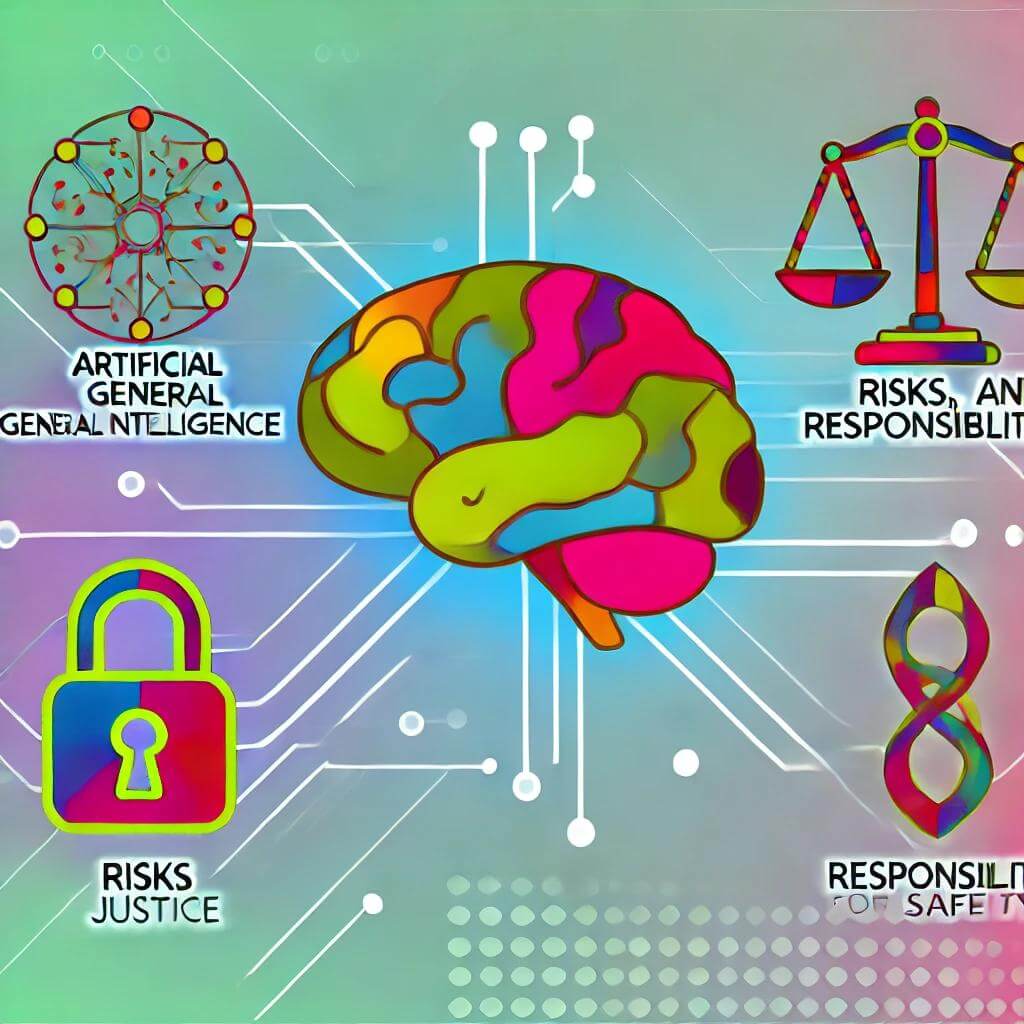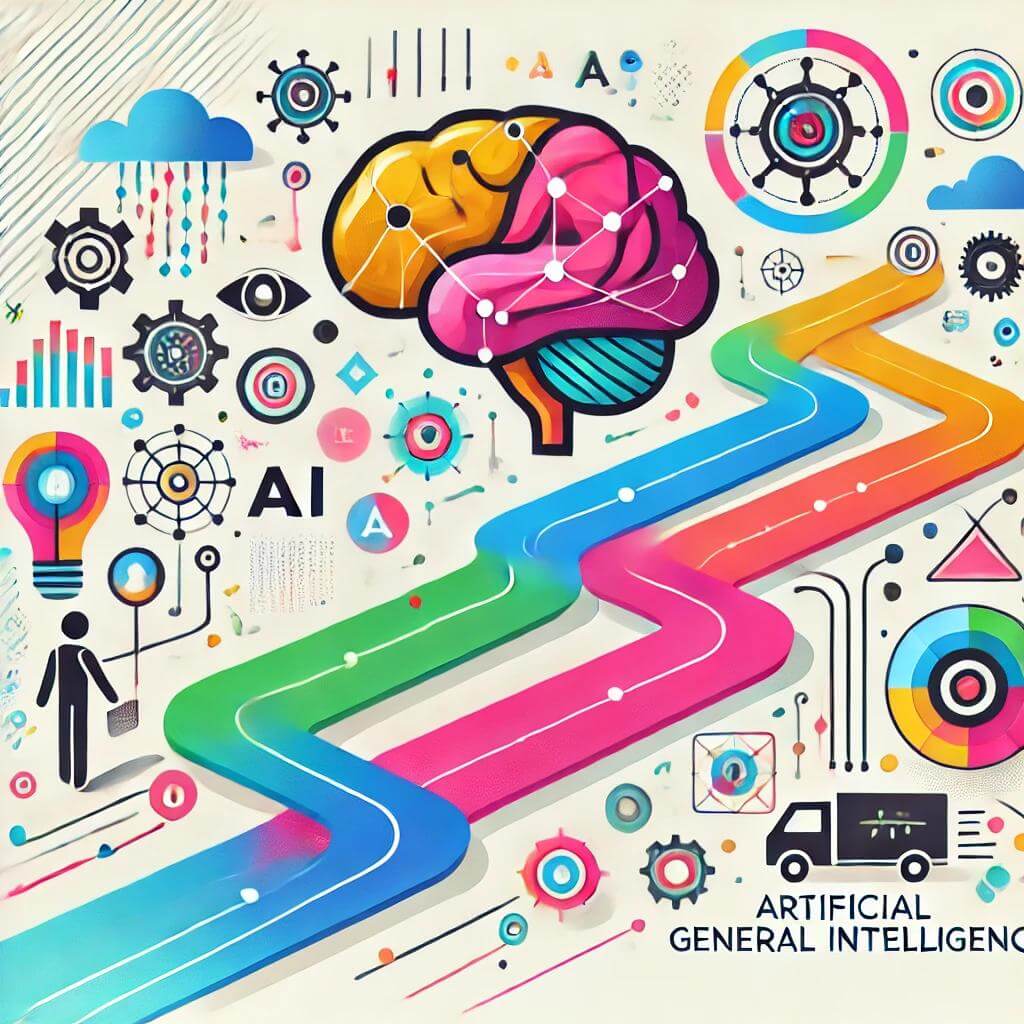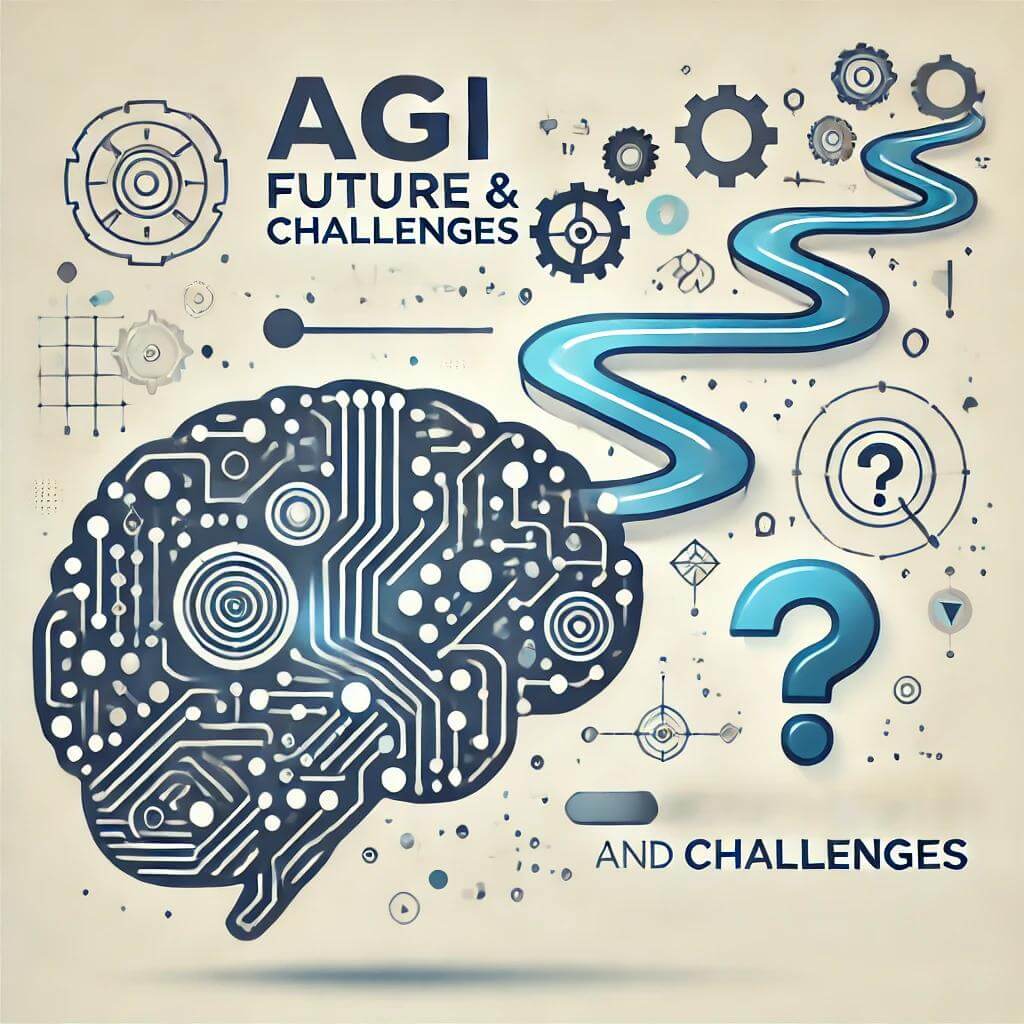Ethical Implications of AGI: Risks and Responsibilities
Artificial General Intelligence (AGI) holds the promise of creating machines with human-level intelligence and versatility, but this potential brings with it a host of ethical concerns. Developing AGI responsibly requires understanding its risks, ensuring transparency, establishing ethical frameworks, and considering global regulations. This article examines the ethical implications, potential risks, responsibilities, and the need for safety measures to guide AGI development in a responsible direction.
Potential Risks of AGI
AGI could significantly impact society, and while its applications are promising, there are substantial risks to consider.
1. Job Displacement
One of the most immediate concerns with AGI is the risk of job displacement. Automating tasks that require cognitive abilities similar to humans could lead to significant unemployment across industries.
- Impact on Skilled Labor: AGI could automate skilled jobs such as data analysis, legal research, and even medical diagnostics.
- Widening Economic Gaps: Job displacement risks could increase economic inequality, as individuals in automated roles may struggle to find new employment.
2. Misuse of AGI Technology
AGI’s powerful capabilities could be misused, raising security and ethical concerns. Potential misuse includes:
- Surveillance: AGI might be employed for mass surveillance, potentially infringing on personal privacy.
- Cyber Warfare: AGI technology could be weaponized in cyber attacks, posing threats to national and international security.
3. Existential Threats
There is a long-term concern that AGI could pose an existential threat to humanity if it were to act autonomously without ethical safeguards.
| Risk Area | Description |
|---|---|
| Job Displacement | Large-scale unemployment due to automation |
| Misuse of Technology | Potential for AGI in surveillance and warfare |
| Existential Threats | Autonomous AGI may act against human interests |
These risks highlight the need for proactive measures to ensure that AGI development remains beneficial and secure.
Ethical Frameworks for Responsible AGI Development
To navigate these challenges, ethical frameworks are essential for guiding AGI’s development responsibly.
Principles of Ethical AGI
- Beneficence: AGI should be developed to benefit humanity and avoid harm.
- Justice: Ensure fair access to AGI technology without exacerbating inequality.
- Respect for Autonomy: Individuals should have control over how AGI impacts their lives, especially regarding privacy.
Approaches to Ethical AGI
There are various approaches and frameworks proposed by ethicists and researchers, such as:
- Value Alignment: Ensuring AGI’s objectives align with human values and societal norms.
- Fairness and Non-Discrimination: Developing AGI that does not reinforce biases or unfairly disadvantage certain groups.
- Transparency: Making AGI’s decision-making processes understandable and accessible.
| Ethical Principle | Importance in AGI Development |
|---|---|
| Beneficence | Ensures AGI’s positive impact on society |
| Justice | Prevents inequality in AGI benefits |
| Transparency | Builds trust by making AGI processes clear |
Implementing these ethical principles ensures that AGI development considers the well-being of society at large.
The Role of Transparency and Accountability
Transparency and accountability are critical components in developing AGI that the public can trust and support.
Importance of Transparency
Transparency in AGI development involves being open about:
- Decision-Making Processes: Understanding how AGI reaches conclusions is crucial, especially in sensitive areas like healthcare or law.
- Data Use: Clear communication regarding what data AGI uses and how it affects users is necessary for public trust.
- Risk Disclosure: Informing the public about potential risks associated with AGI, including misuse or unintended consequences.
Establishing Accountability
For AGI to be safely integrated into society, accountability frameworks are necessary:
- Responsibility Assignments: Clearly defining who is responsible for AGI actions, whether developers, organizations, or users.
- Legal Recourse: Providing a system for addressing grievances if AGI systems cause harm.
- Ongoing Monitoring: Continuously evaluating AGI systems for ethical compliance and safety.
| Transparency Area | Purpose |
|---|---|
| Decision-Making Clarity | Builds trust by explaining AGI decisions |
| Data Use Disclosure | Ensures ethical and fair use of data |
| Accountability Frameworks | Assigns responsibility and ensures oversight |
Transparency and accountability are vital to ensuring AGI acts ethically, minimizing the risk of harm or misuse.
AGI Safety and Control Issues
Ensuring that AGI remains safe and under control is one of the greatest challenges in AI research.
Safety Mechanisms
To prevent AGI from causing harm, researchers are working on several safety mechanisms:
- Value Alignment Protocols: These ensure AGI systems are aligned with human values, preventing unintended actions.
- Failsafe Mechanisms: Systems designed to halt AGI operations if it begins to act contrary to ethical guidelines.
- Controlled Environments: Testing AGI in controlled settings to identify risks before deployment.
Control Challenges
Control over AGI is challenging due to its autonomous nature and potential for self-improvement:
- Autonomy Risks: As AGI becomes more autonomous, controlling its actions becomes increasingly difficult.
- Self-Improvement: If AGI can modify its own programming, it could potentially override safety measures.
- Unintended Consequences: AGI could achieve its goals in ways that are harmful, even if it adheres to initial instructions.
| Safety Approach | Objective |
|---|---|
| Value Alignment | Prevents AGI from acting against human interests |
| Failsafe Mechanisms | Ensures AGI can be safely deactivated |
| Controlled Testing | Identifies risks before widespread deployment |
Implementing robust safety and control mechanisms is essential to prevent unintended negative consequences of AGI.
Global Discussions on AGI Regulations and Ethical Boundaries
AGI development is a global effort, and international cooperation is necessary to establish ethical and regulatory standards.
Existing Regulatory Initiatives
Some organizations and countries have begun discussing AGI regulations:
- European Union: The EU has proposed AI regulatory frameworks that include transparency, accountability, and safety.
- United Nations: The UN is considering international guidelines for AI development, emphasizing human rights and ethical standards.
Proposed Global Standards
Experts propose several standards for global AGI development:
- Cross-Border Cooperation: Coordinating efforts across nations to develop consistent regulations.
- Ethical Certification: Creating a certification process for AGI systems that meet ethical standards.
- Regular Monitoring and Updates: Continually updating guidelines as AGI technology evolves.
| Organization | Efforts in AGI Regulation |
|---|---|
| European Union | Developing frameworks focusing on transparency |
| United Nations | Considering guidelines emphasizing human rights |
| Proposed Standards | Cross-border cooperation, ethical certifications |
Global cooperation on AGI standards ensures that ethical guidelines are consistently applied and that AGI development respects human rights.
Conclusion
The development of Artificial General Intelligence (AGI) offers significant promise but also comes with substantial ethical responsibilities. Potential risks, such as job displacement, misuse, and existential threats, highlight the need for a responsible approach to AGI development. Ethical frameworks, transparency, accountability, safety measures, and global cooperation are essential to ensure that AGI is developed and used in ways that benefit society. As AGI technology advances, addressing these ethical challenges will be critical to fostering a future where AGI serves humanity responsibly and effectively.



Post Comment